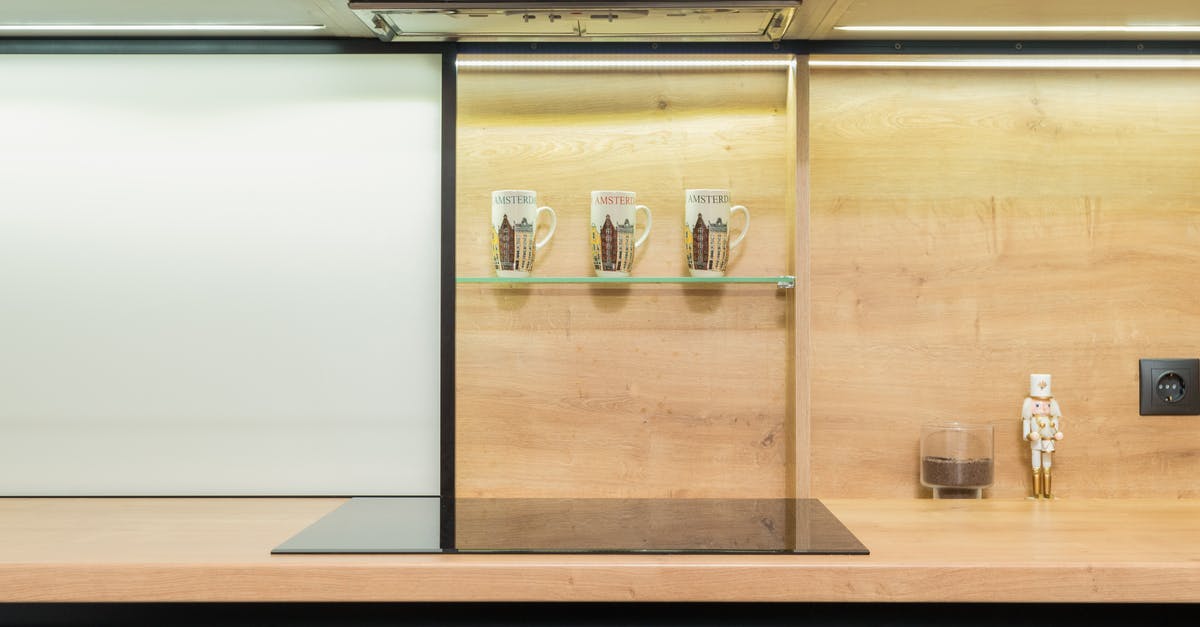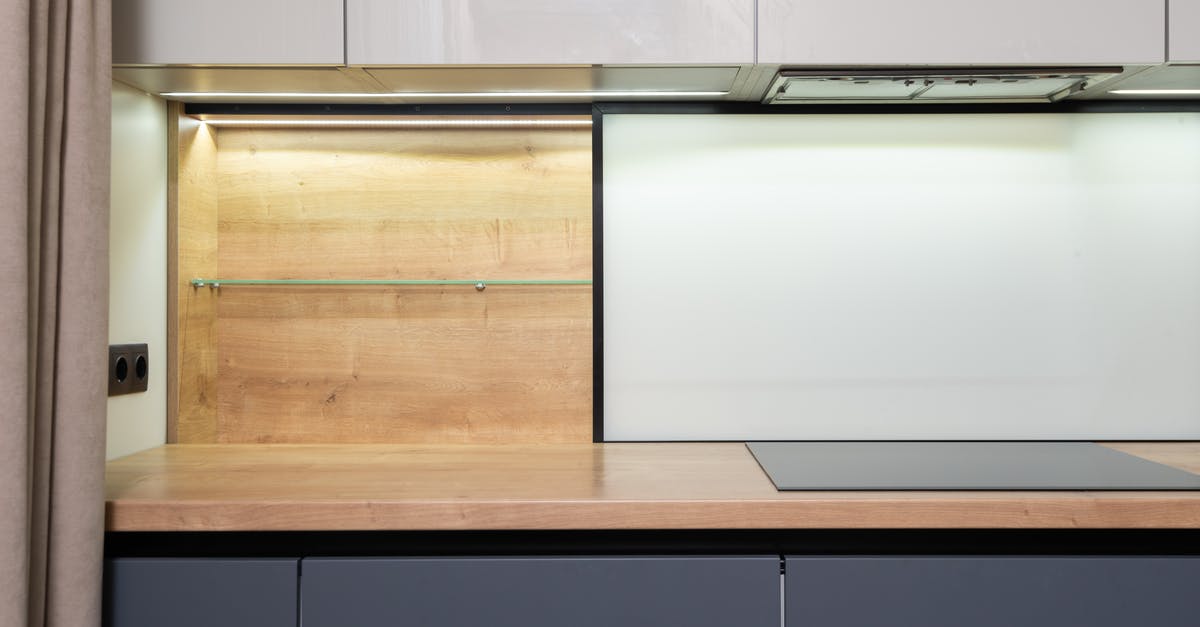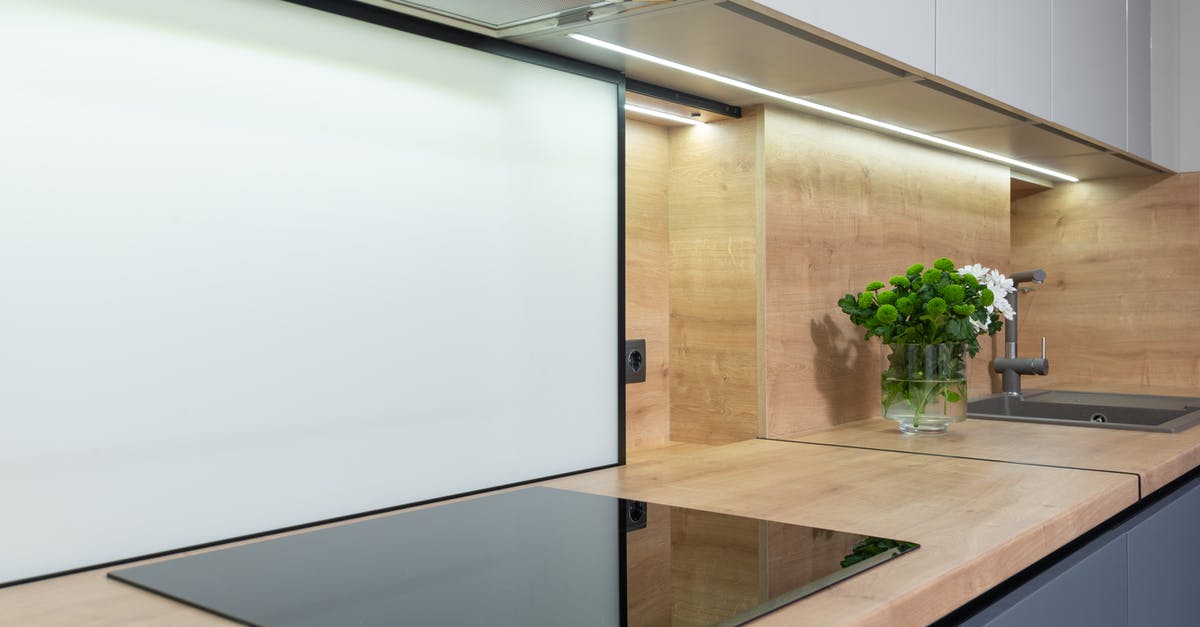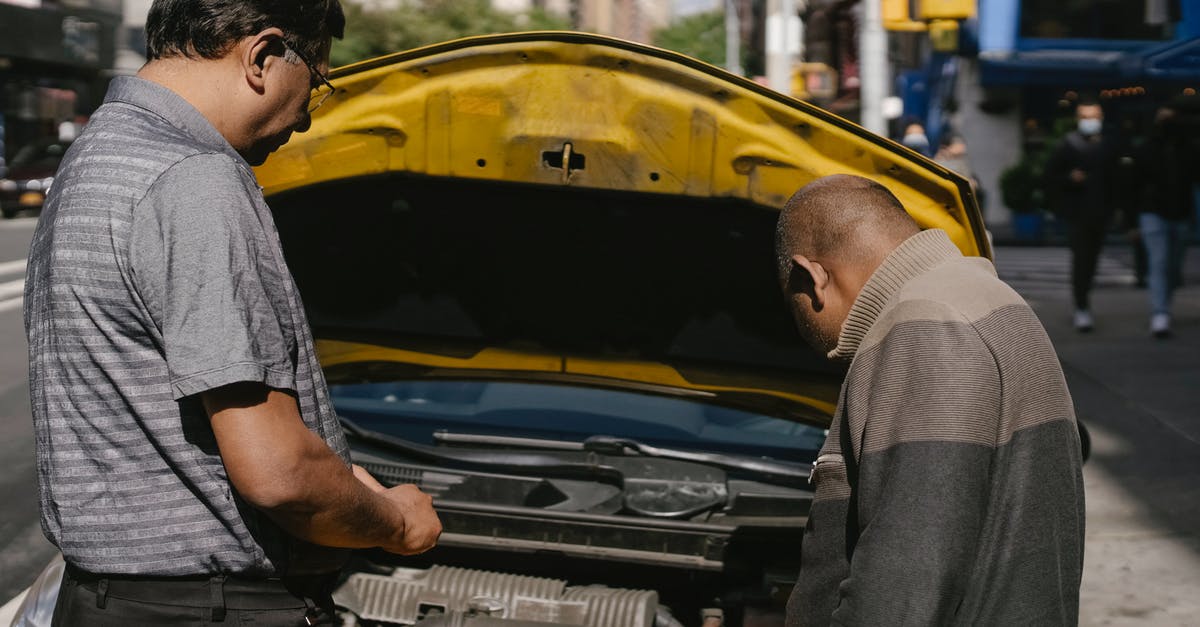Cook with no hood - how to control smell

I am planning an extended stay in an efficiency apartment. Kitchen has no stove (hob), exhaust, or window.
Install an exhaust or recirculating hood is not an option as I don't own the apartment.
I have a sink, fridge, toaster, microwave, and sufficient counter space. It is still tight - over the microwave and crock I would like to keep it to 2 small additional devices or less.
In the efficiency is just a small under fridge but there is an outdoor fridge with freezer I think I will be able to use some of the space.
A crock pot is good for controlling smell so I can do a pretty wide range of foods in the crock pot. Most crock dishes re-heat in a microwave just fine. Crock takes a while and often need to prepare a meal for immediate consumption.
I have access to a charcoal briquette BBQ so I can cook batches of poultry and ground meat and refrigerate as I don't mind those foods reheated in a microwave. I could do single serving on the BBQ but I don't want to spend the 30 minutes it takes to get it up to heat for a single serving. On cold or rainy days I just don't want to BBQ.
Fish and steak does not re-heat microwave very well in my opinion. Not just taste but fish is often an odor problem re-heated in a microwave.
My thought is to get a counter top two burner stove. Either electric coil or induction.
Stuff that has no or little odor is steam vegetable, pan grill vegetable with just a little or no oil, and boil noodle/rice.
Finally getting to the meat of the question. I don't see a good option for cooking or browning raw meat (red, white, poultry, fish) without smell. Any options either in cooking equipment (other than crock) or method for meat and control the smell?
For fish I might be able to poach. I have not tested but I fear that has bit of odor. I might be able to steam fish. Steam would have very little flavor but for a salmon salad it could work.
I know I can use canned for fish and I will. Looking for cook from raw options if any.
I know nutrition is out of scope. I happen to chose a low Na (sodium) and low fat diet. Low Na eliminates many canned foods and most lunch meats.
Best Answer
Is there a bathroom with a fan? Setting up a portable electric hob just outside the bathroom with the door open might help, especially if you can also leave the front door ajar during cooking to provide a through-draught. You could use a folding table if the existing furniture isn't sufficient.
Covering as much as possible, choosing thing with short cooking times, and clearing up promptly will all help a bit, but won't make the problem go away. Low fat approaches are very suitable as frying causes a lot of odour compared to simmering. The low sodium approach cuts out a lot of prepared sauces, which would mean more cooking of flavour ingredients like onions or spices.
A camping stove on top of the BBQ would give you a few more options, but still relies on having good enough weather to cook outside. Compared to the BBQ it gets going quicker and it's better for all wet forms of cooking.
Pictures about "Cook with no hood - how to control smell"



How do I stop cooking smells in my open plan kitchen?
How do I stop my open kitchen from smelling?How do you neutralize cooking smells?
Is it okay to cook food when the hood is off?
It is not safe to cook without a range hood. Everyday cooking produces harmful contaminants including carbon dioxide, carbon monoxide, formaldehyde, and more. Without proper ventilation, these toxins sit in your kitchen and move to other areas of your home.STUDIO APARTMENT HACKS | How To Get Rid Of Smells
More answers regarding cook with no hood - how to control smell
Answer 2
(first, dealing w/ the lack of fume hood)
I currently have a kitchen with no hood, and have lived in other places where that was the case. Only one had the situation where there wasn't a window near the kitchen.
The only time I really need to worry is when I trigger the smoke alarm and need to vent quickly. For times when I'm concerned that might happen (eg, bacon in the oven), I'll set up some cross-ventilation. I found that a fan blowing into the kitchen worked better than one trying to suck out ... but I rarely ever needed it.
When you're cooking stovetop, I suggest use of a splatter screen -- it keeps down the amount of cleaning that you need to do of the upper cabinets, or if you have utensils on a rail behind the stove.
I also tend to cook steaks in the oven, under the broiler. This lets the fat drip down to a cooler area, and reduces the amount of smoke.
I don't tend to cook fish very often, but I'd think that cooking it en papillote would keep down the transfer of smells.
Now, your real problem is the lack of cooking methods. I used to do a fair bit of cooking in a toaster oven. If you're only cooking for yourself, they're plenty large enough ... but look for one that has a true 'broil' mode. You can also get countertop ovens, but they tend to be significantly larger.
Instead of a crock pot, I'd look into an Instant Pot. They have a 'sauté' setting, so that you can brown things before you switch it over to slow cook or pressure cook. The only issue is that there is only one 'slow cook', and it's the equivalent of 'high' on most crock pots.
If you're a pasta person, it is possible to cook pasta in microwave, but you might want to switch temporarily to rice noodles. I usually get the fettuccine sized ones, which I can just pour hot water over. If you're a rice person, I also suggest rice noodles, but you can also get microwave rice steamers which actually work pretty well.
For cooking steak, there are things like the George Foreman Grill, which cook from both sides ... however, there are other brands that will act like that, have a handle so you can apply pressure (for panini), and will open up so that you can use like a griddle. Of the ones that I've used, I like the Cuisinart Griddler -- it has plates that you can pull out to switch it from smooth to grill or even waffle, and to make it easier to clean.
So, if it were me, I'd equip the kitchen with some of the following, depending on how long I was going to be there, and what type of food was available locally:
- Instant Pot
- toaster oven
- electric griddle / panini press
- induction burner (only need a single burner if you have the other ones, too)
... but these are also things that I already have, except for the griddle.
It's also worth rethinking about how you cook when dealing with less than ideal kitchens. I would often cook something that would then give a head start to other dishes that week:
- Broil a 'london broil' type steak, then slice it up to use for stir fries, beef stroganof, cold beef salad, fajitas, etc.
- Poach or roast chicken or turkey, then chop or shred it up to use in enchiladas, pot pie, casseroles, ala king, etc.
- Cook ground beef, onions and peppers, then use it to make an italian meat sauce, burritos, dirty rice (doubled as filling for stuffed peppers), cottage pie, etc.
- Bake potatoes, mash some for matafan or cottage pie, save some for making hash or to fry up for patatas bravas.
This helps to reduce the number of cooking vessels/methods that you need on subsequent nights.
Answer 3
you could try cooking sous vide
basically vacuum sealing the mean and cooking in a bag
Meant to allow for incredibly tender steaks
There are dedicated units that maintain water temps and circulate the water or you can approximate this with a thermometer and a pot on a camping stove
Answer 4
You can try steaming the meat/fish first and then use a torch to char it a bit. Steaming would be better than boiling or poaching in this case, as it will not make the ingredients too wet and makes torching easier. You can even torch your vegetables. I have a small torch that I use to melt cheese when I'm too lazy. It produces very little smoke compared to using a BBQ or a frying pan.
Answer 5
I love roasted fish and I am able to enjoy preparing and eating it frequently in my kitchen without the insidious fishy odors thanks to my filtered fish roaster. In addition to fish, it can broil or toast: steaks, vegetables, bread, nuts, you name it.
In these kitchen devices there are 3 mechanisms at work to minimize food odors. First is that the grill and heating elements (of which there are 2, one above and one below the grill) are enclosed by the clam-shell cover. It is not air-tight as the lower shell is not sealed to the lower heating element as it enters from the rear. This opening allows cool air to enter the roaster and travel upwards to the second mechanism which is the filter in the top cover.
The roaster I have now from Zojirushi has a platinum catalyst filter and I have also had good experiences with roasters which had activated charcoal filters. The third mechanism is that the lower shell is a pan which can be filled with water. Oils especially, but also other liquids and solids landing in water are quickly cooled and produce far less smoke and aerosol odors than if they hit a hot metal surface.
Aside from the fish roaster, I have one more suggestion to those who enjoy fish, but despise the odor that comes with cooking them at home. I buy almost all of my fish from Asian supermarkets and most of them, in addition to cleaning your fish, will also fry it for you for free. (Though I have seen some stores charge tax on fried fish where cleaned fish were not taxed) Mackerel and many other healthy fish you can eat regularly hold up very well to frying and the flesh ends up very similar to that of broiling. I find the service extremely convenient in saving both time and money, but also to the above question, eliminates all odors associated with cooking fish at home.
Answer 6
A small air purifier might help. Counter top ones are available and if your cooking space is small, they should be strong enough.
To remove cooking odors, you should focus on ones that come with a carbon filter. Smells will are volatile organic compounds (VOC) and that's what carbon filters take out of the air.
The issue with this is cost, air purifiers are expensive, especially ones focused on VOCs.
Answer 7
Oddly enough one quick and easy way to get rid of most smells and smoke is actually just to have a spray bottle of either plain water or water with some essential oil(s) mixed in. The spray bottle just needs to be able to produce a very fine mist. Simply spray the fine mist up towards the ceiling and let the water do the rest. The mist will catch most of the smells and bring it down out of the air. But you have to mist the whole room or area, but one or two mistings is really enough for most smells.
I am an acupuncturist, and we burn an herb called moxa (artemisia vulgaris), which produces a very thick and smelly acrid smoke. Most people think is smells a lot like marijuana/weed, which is why I had to figure out a way to dissipate the smell and smoke. Don't want the office neighbors complaining about smells. I find that it really takes out smell/smoke very quickly and without any harmful chemicals or aerosol spray cans. This in conjunction with an air filter should be worth a try?
A con would be if your mist is not fine enough, that you will have a lot of wet things everywhere. If you are in an already damp or humid place may not be a good thing. We have our carpets vacuumed and washed regularly, as that is where the smells all accumulate. But Southern California is usually a pretty dry place, so we don't worry about the humidity too much.
Sources: Stack Exchange - This article follows the attribution requirements of Stack Exchange and is licensed under CC BY-SA 3.0.
Images: Max Vakhtbovych, Max Vakhtbovych, Max Vakhtbovych, Tim Samuel

